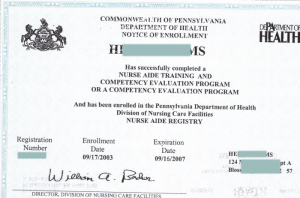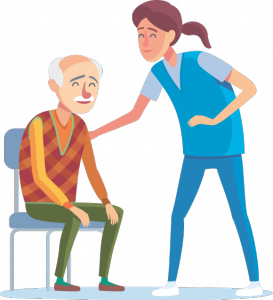Mental health is as important as physical health. It shows in how we think, feel, and act. Every day, the CNA cares for clients, patients, or residents who have emotional needs or mental disorders. Your ability to understand and offer support can make all the difference in their recovery. Learning about mental health will help you build better relationships with others, both on and off the job. The mental health questions of the CNA examination are part of the Psychosocial Care Skills category. This important category also includes questions that cover emotional, cultural, and spiritual needs. On a typical state CNA exam with 70 total questions, there should be about eight such questions.
Questions covered in this Mental Health and Social Services Needs practice test include the following:- Proper use of restraints
- Situations involving patients with dementia or Alzheimer’s
- Sexuality and the elderly
- Respecting other cultures and religions
- Scenarios with the stages of loss and grief
- Dealing with combative residents
Whether you study alone or with classmates, find a quiet place to concentrate and learn. Just like the questions on the actual CNA exam, each practice question is multiple choice with four possible answers. Read each practice question carefully before looking at the choices. If you’re unsure of the correct answer, click the Hint button under the fourth answer to get a clue. If you choose the correct answer, you can proceed to the next question. If you make a mistake, an explanation of the correct answer will pop up to help you remember the answer next time. Taking each test several times is like using flashcards, only easier. You may take the practice test as often as you wish to improve your score and enhance your knowledge. Each time, the order of the questions will be randomized so you’ll learn the material, not the order of the questions. It’s a proven way to strengthen your knowledge and make you more confident about the answers. Good luck with this practice test and with your CNA examination!
Ensuring the accuracy and quality of our practice materials is paramount. Learn more about our rigorous standards in our
Commitment to Accuracy article.



